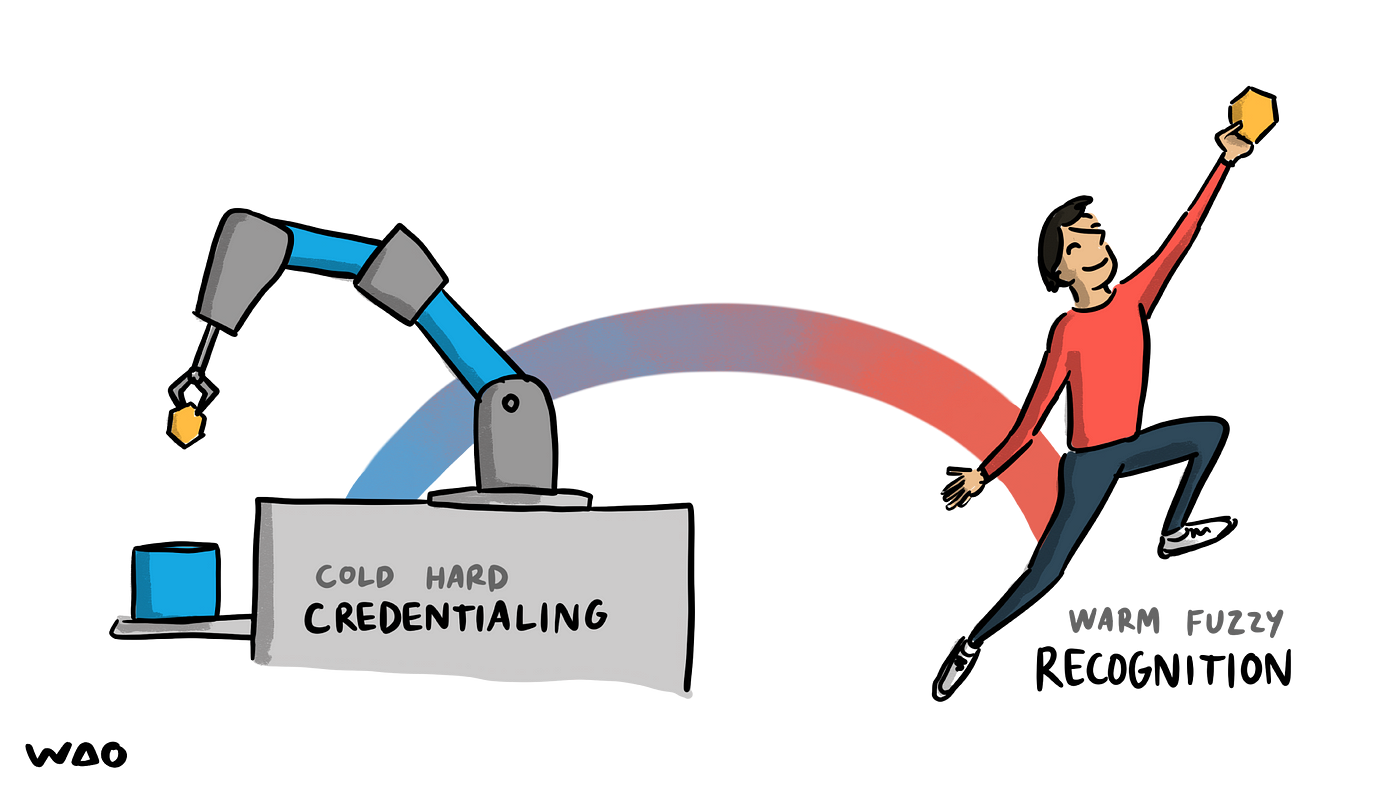Part 2: Why we need to transition
Cross-posted on WAO blog. Read Part 1: The Two Loops Model for Open Recognition advocacy
Whatever your beliefs and values may be, it is impossible to argue that we live in a just and equitable society. To heal ourselves and our world, we need lifelong learners who are curious about the world and actively try to make it better.
“Education is not preparation for life; education is life itself.” — John Dewey
We need communities of people who are engaged with the idea that the way things are is not how they have always been nor how they always need to be. We need alternative systems that take diversity and sustainability into account.
It is important that we work together to address the key problems we’re facing as a society.

There’s good news. Creating change within our system is possible! Inspiring change with alternatives is tried and true, the entire tech industry is built on the idea. To become a society that recognises learning in a way that includes everyone, we need to deal with 3 realities:
1. Power dynamics and hierarchies
The old system puts the power of recognition in the hands of…the already powerful. Recognition from top-rated universities and employers is great, but it tends to exclude already marginalised people. Knowledge, skills, and understanding don’t have to be credentialed by ‘recognised bodies’ to be valuable. There is value to a learner in any case, and it propagates existing power dynamics if there are pre-established hierarchies between issuers (e.g. university vs corporate vs community).
In short, there are ways of recognising others that do not depend on competition or artificial scarcity. Doing so empowers and motivates learners, and recognising one another can help us define our (or our organisations’) values.
2. The difference between credentialing and recognition

Recently, we wrote about the difference between credentialing and recognition in the post Open Recognition is for every type of learning: From cold hard credentialing to warm fuzzy recognition.
It’s our hope that individuals, groups, families, communities, organisations, and institutions come to realise that there is more to life than credentialing. Yes, we need credentials. But we can paint a much richer picture of ourselves and our communities by embracing recognition of all different forms of learning. As Serge Ravet has said, we need to be recognising practices as much as recognising competencies.
3. The spirit of innovation inherent in badges

“Badges can represent our community values as social objects to be crafted, discussed, and gifted as artifacts of gratitude. Each aspect of this process can help celebrate what our community is all about, while at the same time offering public recognition to individuals.”
It’s been 12 years since Les Orchard wrote about how a keynote slide at the 2010 Mozilla Summit inspired him to think about recognition for the Mozilla community. It’s been over a decade since the first Open Badges white paper hit the internet. We live in a world in which digital credentialing is ubiquitous. It’s part of corporate skills programmes. It’s baked into the way we interact online. We are still working towards finding ways to ensure that the “recognition” piece of this system doesn’t get overrun by the “credential” piece.
Open recognition is the original innovation of badges, and it’s the reason technology was pushed towards making decentralised recognition possible. The intention of the community to make learning accessible to marginalised groups also comes into this innovation.
The alternative system
In Part 1: The Two Loops Model for Open Recognition advocacy, we talked about how as one system begins to deteriorate, an alternative begins to emerge. We know the alternative system, one that integrates credentials with other forms of recognition, is better for everyone. Without that integration, cold-hard credentialing supports outdated power dynamics. A tool is only a tool, it’s the way we use it that makes a difference.

Interested in all this? Get involved! Leave us feedback and join the Keep Badges Weird Community!